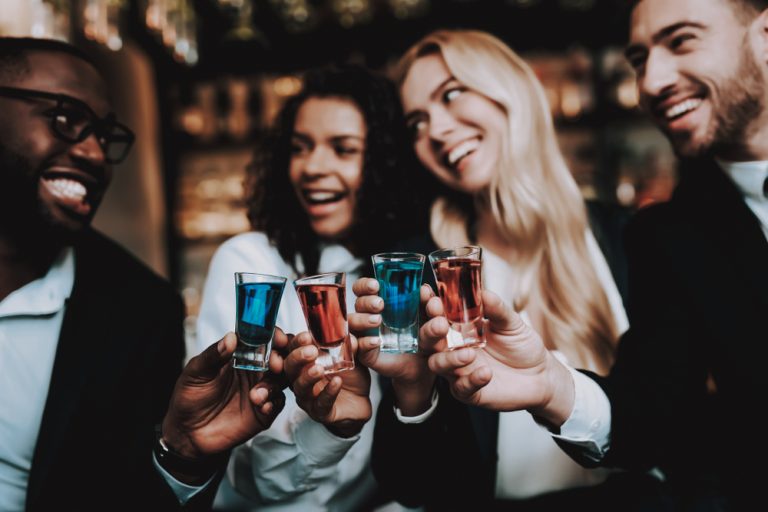Even though the pictures are about a decade apart, the…
When Youve Had Too Much: Hangover Symptoms and Remedies
Treatment options are also available for those suffering from alcohol addiction. According to a recent study, the average duration of an alcohol hangover is 18 hours after stopping drinking or 12 hours after waking up.4 However, several factors influence this timeline. As if this isn’t enough, there’s another key factor to consider in the question of “Can coffee help a hangover? ” Every person’s hangover symptoms vary, but for me, “hangxiety” comes to the type.
Treatment Options
The sole way to prevent a hangover is, as we saw, to drink only in moderation. Failing this, you can reduce the severity of upcoming hangovers by paying attention to hydration and sleep. Others ingredients in antihangover products41 https://ecosoberhouse.com/ are more speculative. Magnesium is sometimes included because, in other circumstances, it has been shown to attenuate headaches.
Your Metabolism & Age
Mayo Clinic suggests sipping on fruit juice or water to help relieve your dehydration and eating a small snack that’s easy on the stomach. You can also take an over-the-counter pain reliever if you have a headache, but be careful with acetaminophen (Tylenol). It can cause liver damage if taken in conjunction with large amounts of alcohol when does a hangover end or by someone who drinks regularly. Like a hangover, alcohol withdrawal can cause headache, nausea, vomiting, tremors, sleep problems, fatigue, anxiety and other mood changes. Unlike alcohol withdrawal, a hangover can occur after just a single episode of drinking. The “hair of the dog” is more than just an expression—it’s a folk remedy for hangovers that involves drinking more alcohol to reduce hangover symptoms.
Amount of Alcohol Consumed
Mixers can also be super high in sugar or artificial dyes; wine can have sulfites. All of these elements may cause a more intense and longer hangover for some drinkers. When you drink more alcohol than it can break down, alcohol-induced toxins such as acetaldehyde build up and put more stress on your Substance abuse liver. Acetaldehyde is extremely toxic and when it’s not broken down quick enough, that’s how a hangover begins.

Nausea and vomiting
- After drinking too much, some people also sweat more, vomit, and experience digestive issues like diarrhea, all of which cause the body to lose fluid.
- Sugary drinks can make a hangover worse, but it’s not the main cause of a hangover.
- Melody is here to help as you adjust to a life with less (or no) alcohol.
- By sleeping through meals, you’re depriving your body of essential vitamins and minerals that could help alleviate hangover symptoms and speed up recovery.
Moreover, if alcohol is consumed on an empty stomach, the risk of hypoglycemia increases as there’s no accompanying food to stabilize glucose levels. It might be too late to avoid dehydration for this hangover, but for your next hangover, I recommend you start fighting dehydration before you even begin your night of drinking. You’ve probably heard the “drink a full glass of water for every drink you consume” recommendation, but many of us aren’t great at remembering to do this. I’ve found taking a pre-drinking supplement that contains electrolytes, such as Jelly IV, to help combat the dehydrating effects of alcohol before they occur. Consuming coffee to improve hangover symptoms may seem like a good idea, but it often makes anxiety symptoms worse. As an irritant to the nervous system, consuming coffee can cause an irregular heart rate, high blood pressure, and worsened irritability.
- Even a tiny bit of dehydration can make a huge difference in how you feel.
- The content of this article is not intended to be a substitute for professional medical advice, examination, diagnosis, or treatment.
- In some cases, it can even be dangerous, as forceful and unnecessary vomiting can tear small blood vessels in your stomach and esophagus, causing bleeds.
- Treatment options are also available for those suffering from alcohol addiction.
Support

Also known as “the hair of the dog that bit you,” it’s believed that this method alleviates hangover symptoms by boosting endorphins and slowing the creation of toxic compounds. The importance of moderation in alcohol consumption cannot be overstated. The best way to avoid a hangover is to drink responsibly or abstain altogether. However, for those times when overindulgence occurs, a balanced approach to hangover management is key. This includes getting adequate sleep, staying hydrated, eating nutritious foods, and possibly using over-the-counter remedies for symptom relief.
- It begins as a person’s blood alcohol levels decrease after they stop drinking, and it can last for 24 hours or more.
- You love it when it warms you up and washes out your worries, but a few drinks too many and you wake up the next morning groggy and nauseated, with a pounding headache.
It’s also good to know the difference between alcohol poisoning and hangovers, though alcohol poisoning symptoms usually show up while you’re drinking, not the day after. Still, 24 hours can feel like an eternity when you’re dealing with a mishmash of physical and mental symptoms. And depending on various factors, some symptoms can be worse than others in terms of severity and duration. After a night of drinking, my mind naturally says, “Go downstairs and make a cup of coffee,” to energize my sluggish self.
This Post Has 0 Comments